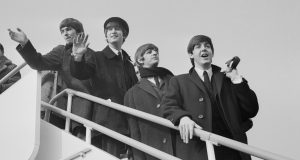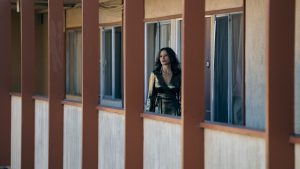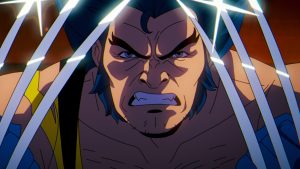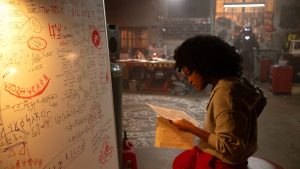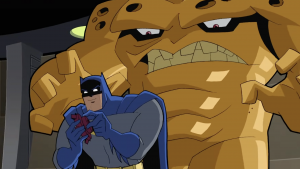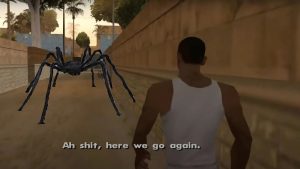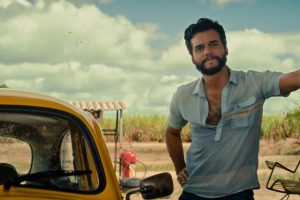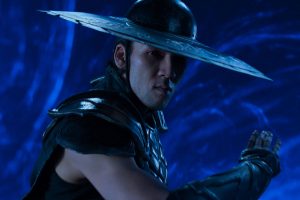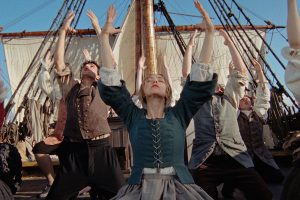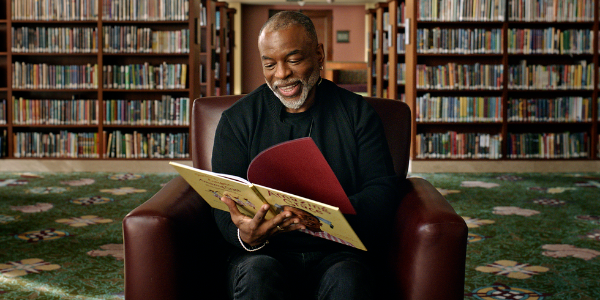
Mr. Rogers was one of the most formative people in my early development. I watched his program religiously and even received a signed letter from him in elementary school. He died in 2003 and it was a major loss for a generation of kids and parents.
However, if you wanted to consider his most obvious heir apparent in the child television space, you wouldn’t have to look much further than LeVar Burton. He’s synonymous with learning and loving to read. That’s a stellar reputation on its own without factoring in his illustrious career acting in programs like Roots and Star Trek: The Next Generation.
Speaking from my own experience, there’s a kind of ruefulness when you acknowledge to your peers that you never grew up with cable channels like Disney Channel or Cartoon Network. You had PBS. It was one of the stalwarts of my childhood.
But when you do a running tally of shows like Mr. Rogers’ Neighborhood, Reading Rainbow, and Arthur (which finally aired its final episode in 2022), there are worse things to devote your attention to.
Because it’s an important distinction to make: All TV is educational. It’s a question of what we are teaching. From the day we are born to our dying day, we are impressionable creatures — habituated by what we take in, and that’s only become more prevalent with time as screens have proliferated and become more intrusive.
I thought momentarily of the episode of Reading Rainbow featuring the book about the boy who got square eyes from watching too much TV. It still lingers in the back of my mind…
The documentary does confront the most obvious elephant in the room: Many people think of television as the enemy of reading. Surely they are diametrically opposed, with TV leading to the extinction of the other. However, it strikes me how visionaries do not cower in fear but step forward in faith. The likes of Mr. Rogers and the voices behind Reading Rainbow saw television as a wonderful technological tool that could be used for good.
Take a Look, It’s in a Book
Directors Bradford Thomason and Brett Whitcomb‘s Butterfly in The Sky offers up a fitting origin story of a show that began as a noble endeavor. It was the brainchild of educator Twila Liggett, who called upon the talents of fledgling producers Cecily and Larry Lancit to make a documentary-style show for kids distilling down important lessons into individual episodes.
Sesame Street was focused on early development, Mr. Rogers was about emotional and social skills, but there was still a niche to be filled, not about learning to read, but rather fostering a love of reading. Enter Reading Rainbow.
An important point is made that the secret to the show’s success came with landing LeVar Burton as the host. He was game to do everything and go anywhere. It wouldn’t have worked as well without his central presence whether he explored the edge of an active volcano or visited behind the scenes of his very own role in Star Trek (a personal favorite of mine).
source: XTR
Like Fred Rogers before him, he had the innate ability to talk with kids and gain their trust because he was authentic without speaking down to them. It’s easy to forget that he was still a young man when the show first began airing, and he was insistent on being genuine and expressing himself through his onscreen appearance. It’s not something I considered at the time, but there was something quietly powerful and normalizing about having a young black man in a role like this.
Along with the rest of the crew, he had a childlike enthusiasm. In fact, everyone interviewed seems to have this pervasive wonderment and playfulness which feels like the show’s modus operandi. These people loved what they were doing and banded together to create something special for Public Broadcasting.
Yet again there are echoes of Mr. Rogers’s famous testimony before the House Appropriation Committee as LeVar goes before the committee a couple of decades later faced with a similar prospect of their funding being slashed. Essentially he was there to justify its existence.
What programs like his provided was a commercial-free sanctuary for kids; he was well aware of how important that was since he had young children of his own. Thanks to his intercession, the team lived to make more episodes.
LeVar was also visible in one of the most consequential cultural moments for young children growing up in a new century. For many of us, myself included, 9/11 was one of the first times we had been confronted by death and suffering so brazenly. I remember Mr. Rogers giving a public service announcement in the aftermath to offer a comforting voice of reason.
However, this documentary highlights the special episode Levar did at a school near Ground Zero. I never saw the program in original syndication, but it’s striking how sobering and equally uplifting the sequences are as he talks with the kids. We witness a simplicity in these children — my peers — that is wise beyond their years. It’s remarkable to watch.
When I was in the process of phasing out of children’s TV shows, I remember Reading Rainbow eventually disappearing without much fanfare. Butterfly in the Sky puts the show’s cancellation in the context of The Great Recession and suddenly it all makes more sense.
Reading Rainbow came to an end, but what was left behind as a legacy was over 20 seasons and more than 150 individual episodes.
Conclusion: Butterfly in The Sky
If there’s anything to take away from the doc, it’s that stories have immense power. We learn through stories, and Reading Rainbow cultivated an environment that was safe for kids and equally empowering — it engendered curiosity.
It’s fitting to see LeVar‘s visit to Mr. Rogers’s Neighborhood because Fred exhorts him what a wonderful thing it is growing up with people who care about you. I’m sure many of us feel this way about both these men because they impacted us in our most impressionable years. They gave us the kind of education that’s more precious than we can begin to articulate.
In one of my favorite sitcoms, Community, there’s a running joke that Troy Barnes (Donald Glover) never wants to meet LeVar Burton because he is his childhood hero; he gets starstruck in his presence, even growing catatonic to humorous effect.
With Glover’s departure later in the show’s run, it’s apropos that Troy was sent off by his study group family with LeVar as his co-captain. Troy finally finds his voice and he’s prepared to sail away with his hero by his side.
Because for kids of a certain age going off on an adventure with LeVar Burton sounds extraordinary. And we would know because we did it during every episode of Reading Rainbow.
Does content like this matter to you?
Become a Member and support film journalism. Unlock access to all of Film Inquiry`s great articles. Join a community of like-minded readers who are passionate about cinema – get access to our private members Network, give back to independent filmmakers, and more.
